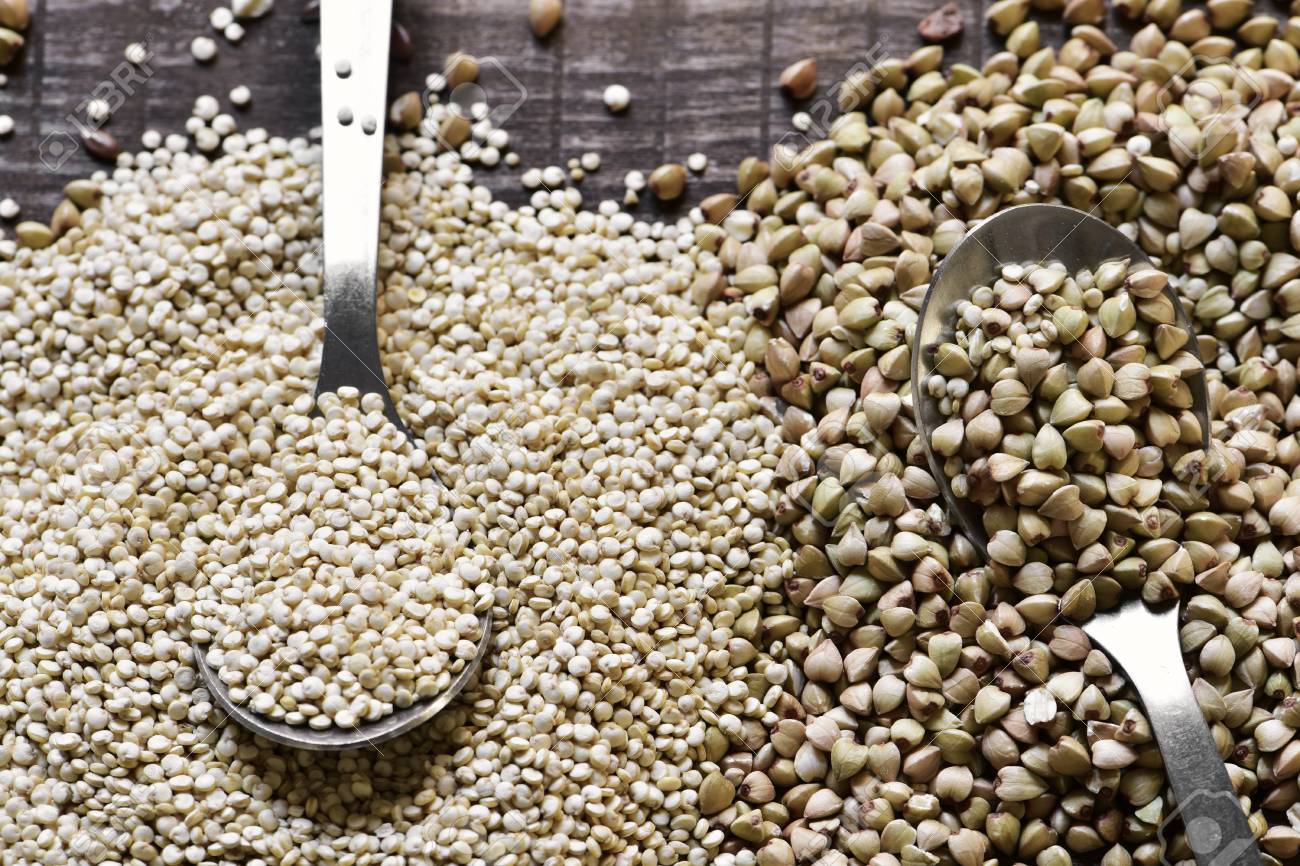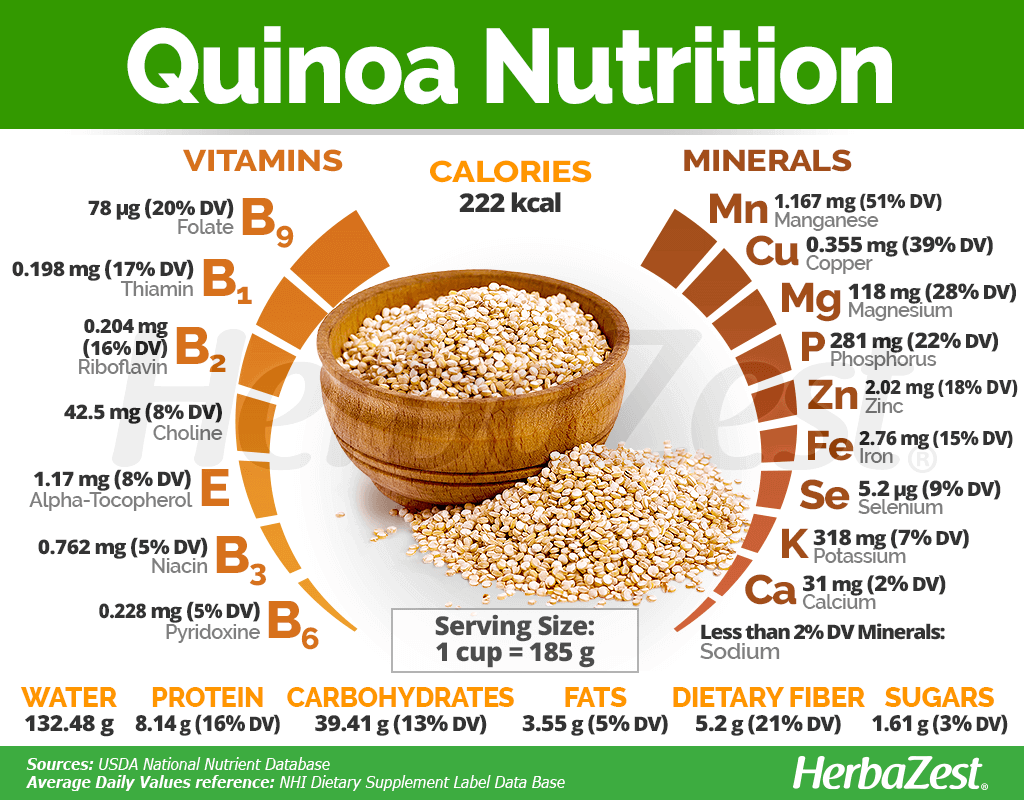Quinoa / Buckwheat Hot or Cold Porridge

1 cup of Quinoa or Buckwheat
Dates 5-10 and/or
Apricots 5-10 and/or
Figs 5-10 and/or
Prunes 5-10
Milk of choice (I use almond/hemp/coconut/flax)-add until you reach desired consistency (about 3-4 cups for me)
Sunbutter 16 oz jar
Avocados 3-4
Maple Syrup to taste (optional)
The original recipe was written using quinoa but after a food sensitivity and gut test we discovered that buckwheat is a better fit for Emma than quinoa.


If using quinoa rinse and cook in insta-pot for 1 minute with 1.5 cups of water. Add cooked quinoa and the rest of the ingredients to a blender until smooth.
Quinoa is non-GMO, gluten free and usually grown organically. It is considered a whole-grain crop that is grown for its edible seeds. For good reason it was referred to by the Inca Empire as the "mother of all grains" and believed to be sacred. Most quinoa properties are determined by a high amount of essential amino acids, which are transformed into bio-available protein. Quinoa possesses eight amino acids that the human body can not produce. They are considered essential for transforming into protein and muscle but also for aiding in many other metabolic functions.
Maple Syrup to taste (optional)
The original recipe was written using quinoa but after a food sensitivity and gut test we discovered that buckwheat is a better fit for Emma than quinoa.

While many people think that buckwheat is
a cereal grain, it is actually a fruit seed that is related to rhubarb and
sorrel making it a suitable substitute for grains for people who are sensitive
to wheat or other grains that contain protein glutens. Buckwheat flowers are
very fragrant and are attractive to bees that use them to produce a special,
strongly flavored, dark honey. This makes it an excellent meat substitute.
High protein buckwheat flour is being studied for possible
use in foods to reduce plasma cholesterol, body fat, and cholesterol gallstones.
“The properties of buckwheat are: Neutral
thermal nature; sweet flavor; cleans and strengthens the intestines and
improves appetite. Is effective for treating dysentery and chronic
diarrhea.” According to Paul Pitchford in Healing with Whole Foods
If using buckwheat rinse 1 cup buckwheat then boil in
2 1/2 cups water 10-15 minutes until water is gone.

If using quinoa rinse and cook in insta-pot for 1 minute with 1.5 cups of water. Add cooked quinoa and the rest of the ingredients to a blender until smooth.
Quinoa is non-GMO, gluten free and usually grown organically. It is considered a whole-grain crop that is grown for its edible seeds. For good reason it was referred to by the Inca Empire as the "mother of all grains" and believed to be sacred. Most quinoa properties are determined by a high amount of essential amino acids, which are transformed into bio-available protein. Quinoa possesses eight amino acids that the human body can not produce. They are considered essential for transforming into protein and muscle but also for aiding in many other metabolic functions.
These amino acids include isoleucine,
a blood glucose-lowering amino acid; leucine,
which is crucial for building and maintaining muscle mass; lysine and methionine,
both required for growth and tissue repair; phenylalanine,
which plays a key role in the biosynthesis of other amino acids; threonine,
an immunostimulant that promotes endocrine health; tryptophan,
which is required for infant growth and brain serotonin synthesis; and valine,
which promotes mental vigor, muscle coordination, and emotional calmness.
Quinoa is a powerhouse of minerals, including manganese, copper, magnesium, phosphorus, iron, and zinc, all of which are
necessary for cellular metabolism, as well as for healthy bones and the
well-functioning of nerves and muscles. It also provides adequate levels of potassium and selenium, both important
for the nervous and immune systems.
This Andean grain is a good source of B complex vitamins,
mainly B1 (thiamin), B2 (riboflavin),
and B9(folate),
and its nutritional value is rounded by adequate amounts of B3 (niacin) and B6 (pyroxidine), as
well as choline and vitamin E (alpha-tocopherol).
So I was excited to try something
new with Emma and of course she turned her nose up after a few bites. I was a little
nervous about it because the consistency is very similar to oats and she is not
a fan of oats. But as with everything else, I was not going to
give up that fast. Knowing that she prefers cold to hot I decided to try
something different. So I started adding some even more power foods.
Figs: Great help enhance digestion and regulate bowel
movements. They are beneficial for respiratory passages. Figs
contain phenolic compounds, mostly flavonoids, organi acids, anthocyanins, and
coumarins, all of which have powerful antioxidant actions that contribute to
enchance all body functions, including immune system, warding off diseases and
promoting cellular regenerations-even better than red wine (which come to think
of it may go good together moms). Figs are also rich in dietary fiber.
Apricots: Apricots are an excellent source
of beta carotene, providing 30%
of the recommended daily value. They also provide high amounts of vitamin
C (ascorbic acid), potassium and fiber. Apricots are rich in phenolic
compounds, which have great
antioxidant, cardioprotective properties, but boast the highest levels of carotenoids, necessary to maintain the health of eyes and skin,
as well as for preventing degenerative diseases.
Dates: Dates
are high in polyphenols, fiber and potassium. They promote stronger
bones and teeth and boosts the immune system. Dates are rich in vitamins B6, A
and K. They improve intestinal health and improve the metabolism and
immunity as well. Good source of folate, thiamin, niacin and
riboflavin.
Maple Syrup: Contains over 65 antioxidants, helps fight inflammatory and neurodegenerative disease, may protect against cancer, helps protect skin health and it has high amounts of zinc and manganese.
Sunbutter: High in protein, loaded in Vitamin E, magnesium, aids digestion and high in healthy fats.
Add all to blender with milk of choice and blend until smooth. I freeze, just as I do my avocado ice cream. Emma will eat this for a snack and also for breakfast. Super fun to get "ice-cream" for breakfast now isn't it?




